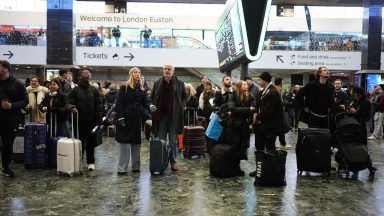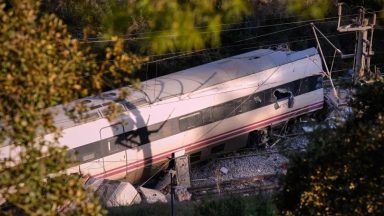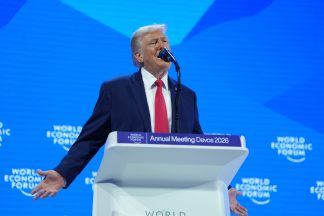Currently road-freight makes up 5 percent of the UK’s emissions, so there is an urgent need to de-carbonise the industry. Now, a group of major UK companies – including Nestle and John Lewis – have begun trialling a fleet of electric lorries to find out exactly what they’re capable of, as ITV News Science Correspondent Martin Stew reports.
Electric heavy goods vehicles (HGVs) are being trialled across the UK, in a bid to help freight operators reduce carbon emissions.
Project Jolt, led by Cambridge University, is working with 14 fleets across the country to explore how HGV’s can go green, as the deadline for net zero approaches.
“The urgency of the climate crisis is driving adoption of electric heavy goods vehicles at a rate that few in the industry would have expected five years ago,” said Professor David Cebon, Leader of Project Jolt.
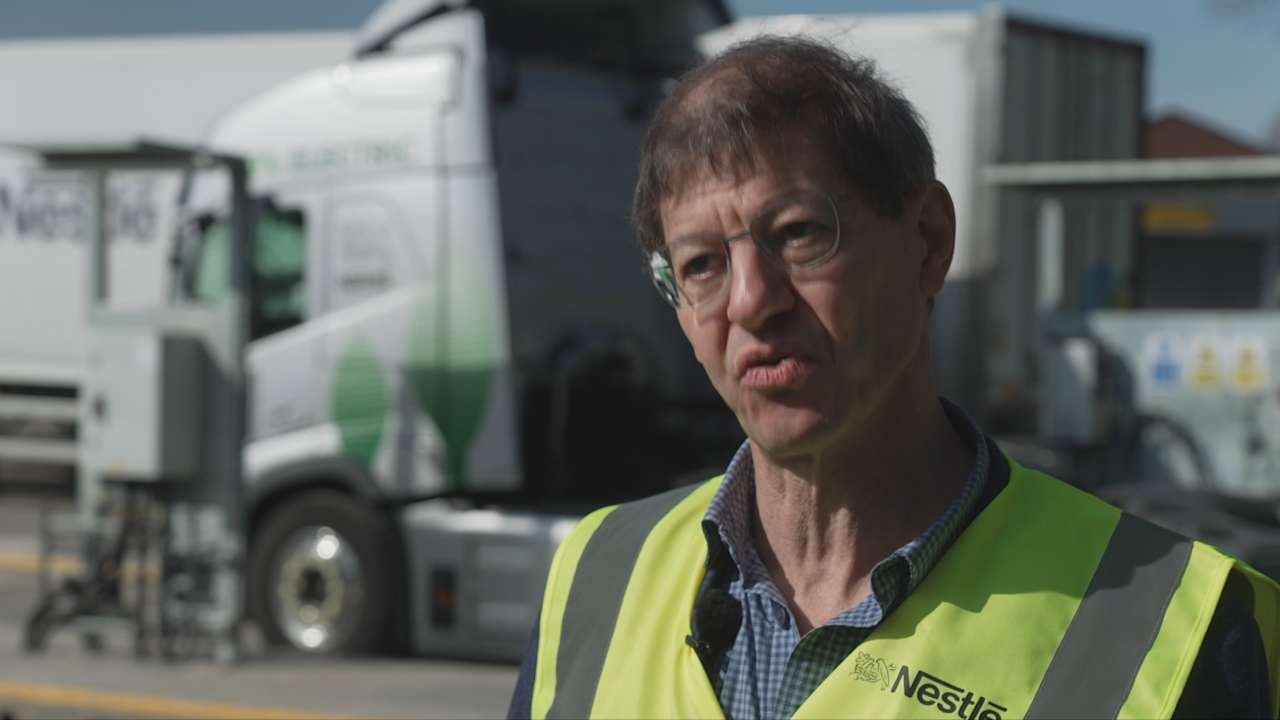
“But there’s still a long way to go to understand how whole fleets and industries can transition to electric heavy goods vehicles in a technically feasible way.”
Challenges include the cost of replacing infrastructure; the limited range of electric vehicles and the lack of capacity in the national grid.
Nestle fills 4,000 lorries a week in the UK – a huge operation which relies on diesel trucks, which are economical and reliable, but dirty. Which is why electric alternatives are being tested.
Joseph Hurst, Sustainability lead for Transport at Nestle UK, says the test is highlighting some issues.
“We still need to get Kit Kats out exactly as we have done, but there are new challenges from range to things we haven’t had to deal with before,” he told ITV News.
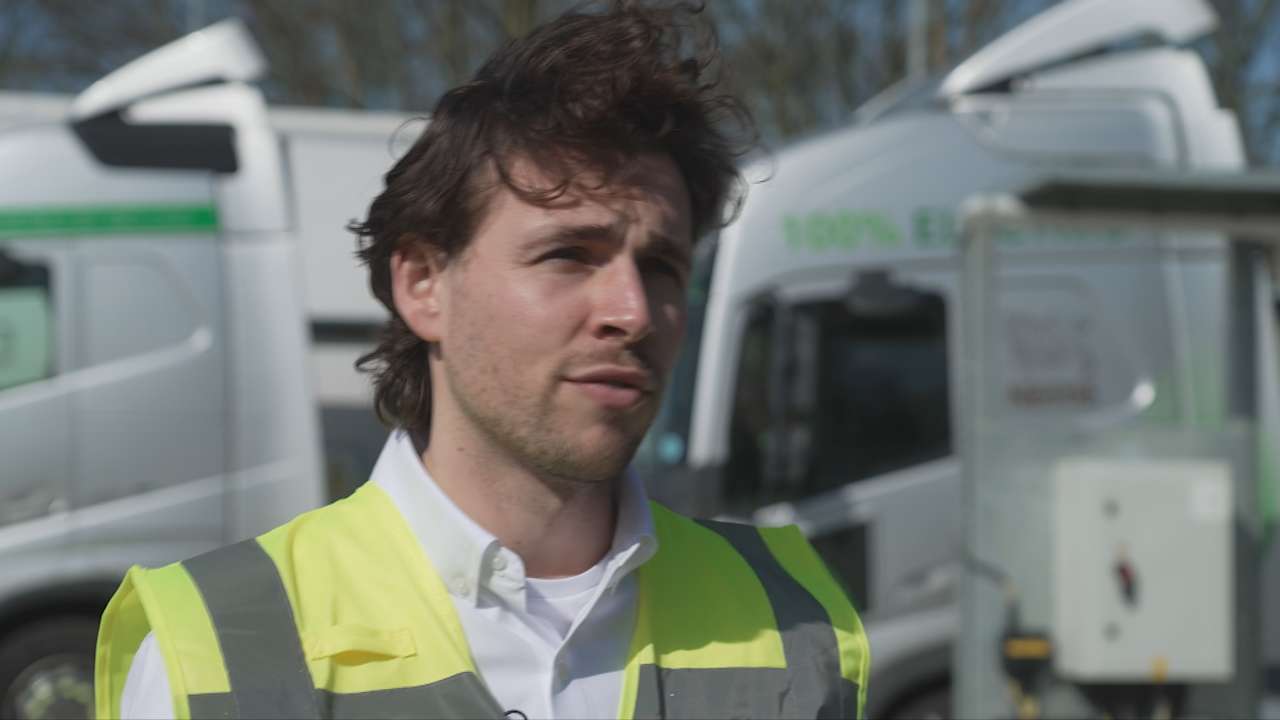
Prof Cebon identified charging capacity as one of the biggest challenges to introducing electric HGV’s on a bigger scale, because electrifying all lorries would require a third as much power as we currently use across the whole country.
“We’ve got tens of thousands of facilities like this that need to be connected to the grid,” he explained.” Getting a grip on that is the most important thing by far for the Government to get a grip of.”
Cost is also an issue for freight operators – an electric HGV costs £300,000 upfront, while the traditional alternative is £160,000.
Furthermore, an electric vehicle can carry 18% less weight than a diesel truck and its range is limited to around 130 miles, which is a lot less than the 800 mile range of a diesel truck.
However, with new diesel lorries being phased out from 2035, it is hoped Project Jolt will spark some solutions.
Follow STV News on WhatsApp
Scan the QR code on your mobile device for all the latest news from around the country


















